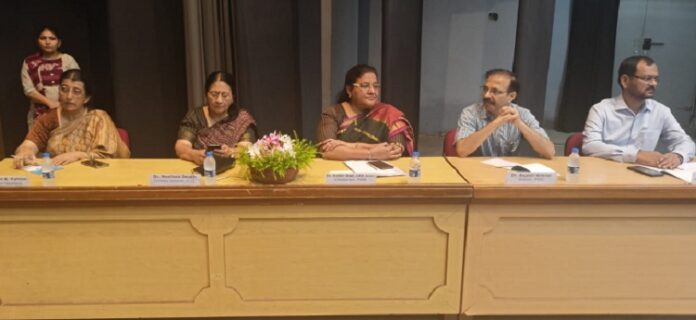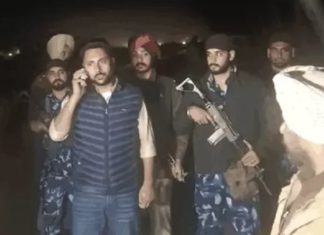kapurthala. “Development, too often, has been driven by a particular need, generally to meet the aspirations of people for a better lifestyle and often without fully considering the wider future impacts. We are already seeing the ecological backlash of unplanned development in the past. If we continue to pursue ‘business as usual’ without taking into consideration the limitations of our environment and resources, the unwanted consequences of our actions on our biosphere and ourselves will be more frequent and severe. Hence, the need to take action now!,” said Dr. Satbir Bedi, IAS (Retd.), Chairperson, PSEB, Chief Guest at the International Seminar on “Education For Sustainable Development: Building Knowledge-Skills-Attitude” organized by Pushpa Gujral Science City under the Azadi ka Amrit Mahotsav occasion. Around 200 participants, including principals of Adarsh Schools set up by Punjab Govt. in various districts of Punjab, teachers from Govt. Schools from several districts of Punjab and CBSE & ICSE schools across Punjab participated in the seminar.
Speaking at the occasion, the Guest of Honour, Dr. Rupanjali Karthik, Special Secretary, Deptt. of School Education, GoP said, “The need for protection and conservation of the environment and sustainable use of natural resources is reflected in the constitutional framework of India and also in the international commitments of India”. She also informed that Environment protection is mentioned in the Indian Constitution as part of Directive Principles of State Policy as well as Fundamental Duties.
At this occasion, Dr. Neelima Jerath Director General Science City said, “Children are powerful agents for change and their potential must be seized and strengthened from the school level, placing education at the centre of their empowerment to participate and lead processes, programs and policy initiatives that address environmental challenges”. Dr. Jerath further said that, as always, teachers have a major role to play to convey the dimensions of the 17 UN Sustainable Development Goals and Agenda 2030, as well as, help students realize how the world can be transformed for the better, through their conscious positive actions.
The key speakers at the event who shared international concerns and experiences in implementing sustainability education in schools were: Mr. Martin Jarrath, General Coordinator for the UNESCO Baltic Sea Project who shared case studies on ESD implementation by UNESCO in 9 European countries (Germany, Russia, Denmark, Sweden, Finland, Estonia, Lativia, Lithuania, Poland) involving 180 schools and Ms. Scilla Edmonds, an ESD expert & curriculum developer and Principal at “The Birches” Durban, Kwazulu-Natal, South Africa who shared how Education on Sustainable Development can help develop positive attitude towards environment conservation and sustainability. Mr. Jarrath also offered to collaborate with interested schools in Punjab on ESD so that joint student programs could be taken up.
Experience at the National level were shared by experts from TERI and Kendriya Vidyalaya Sangathan. Whereas Dr. Livleen Kaur Kahlon, Environment Education & Awareness Division, TERI spoke on the three pillars of sustainability, i.e. Ecology, Economy & Society, as well as, provide information about TERI’s several programs across India. Mr. P.C. Tewari, Assistant Commissioner, Kendriya Vidyalaya Sangathan also shared his views, experiences and case studies on how KVKs have been implementing EE and ESD in schools. The seminar provided platform for forging new connections and fostering international collaborations.
While proposing Vote of Thanks, Dr. Rajesh Grover, Director, PGSC said that ESD was a lifelong learning process which enhances the cognitive, socio-emotional and behavioural dimensions of learning and encompasses learning content and outcomes, pedagogy and an improved learning environment.








































